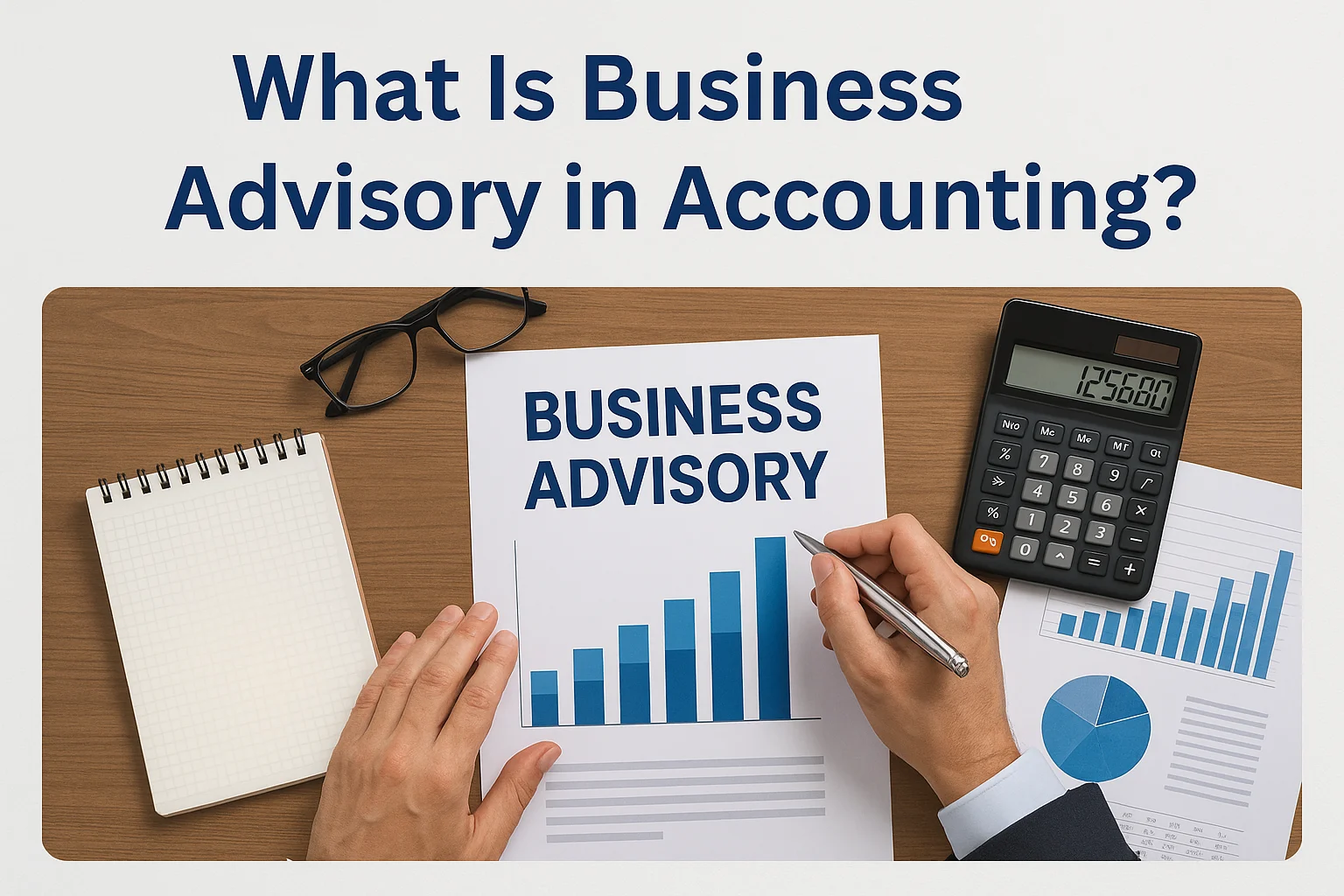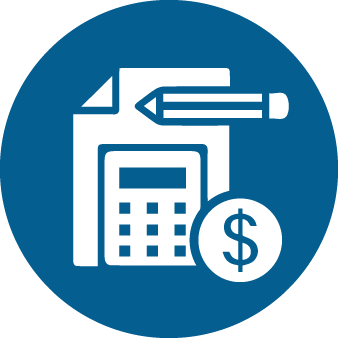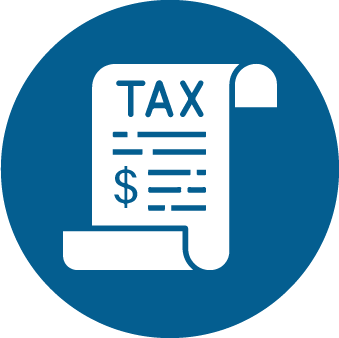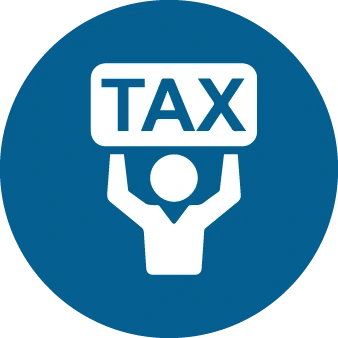Certified Public Accountants (CPAs) are not just experts in crunching numbers; they are trusted financial advisors, auditors, tax experts, and business consultants. Understanding what a Certified Public Accountant does reveals their critical role in various aspects of accounting and finance, making them indispensable for individuals and businesses aiming for financial accuracy, compliance, and strategic growth.
In this guide, we will explore the myriad services offered by CPAs and how they can be instrumental in managing and enhancing your financial health, whether it’s for personal finance, business accounting, tax planning, or complex financial consulting.
Learn More: what does CPA mean in accounting?
How Can a CPA Help My Business?
CPAs are much more than accountants for small businesses; they are financial strategists, advisors, and partners in growth. Their involvement can lead to significant improvements in financial management, compliance, and overall business success.
Expert Financial Guidance: CPAs provide expert advice on a range of financial matters crucial for small businesses. They help in setting up robust accounting systems, ensuring accurate tracking of income, expenses, and profits, which is vital for new and growing businesses.
Tax Efficiency and Compliance: One of the key strengths of CPAs is their expertise in tax law. They can identify tax credits and deductions to minimize liabilities, ensure compliance with current tax regulations, and help small businesses navigate the complexities of tax filing, thereby avoiding penalties and audits.
Cash Flow Management: CPAs assist small businesses in managing their cash flow more effectively. They analyze patterns in income and expenditure, helping to forecast cash flow needs and advising on strategies to maintain optimal liquidity.
Cost Reduction Strategies: CPAs can review business expenditures and identify areas where costs can be reduced without impacting business operations. This includes supplier negotiations, overhead cost analysis, and efficiency improvements.
Budget Creation and Monitoring: They help in creating realistic budgets that align with business goals. CPAs also monitor these budgets, providing regular reports and insights, which helps in keeping the business on track financially.
Financial Planning and Analysis: CPAs provide valuable insights into the financial health of the business through detailed analyses. They help business owners understand their financial statements, identify trends, and make data-driven decisions.
Risk Management: CPAs assess financial risks associated with business operations, investments, and market fluctuations. They advise on strategies to mitigate these risks, such as diversification, insurance, and contingency planning.
Access to Financing: For businesses looking to expand or needing extra funds, CPAs can assist in preparing financial statements and documentation required for bank loans or investor presentations. Their involvement adds credibility to the financial information presented.
Strategic Business Planning: CPAs offer strategic advice on business growth, expansion strategies, and profitability optimization. They provide insights on the financial implications of business decisions, helping owners plan for the future with confidence.
Improving Business Efficiency: By implementing efficient accounting processes and leveraging the latest accounting technologies, CPAs help streamline business operations, leading to time and cost savings.
Auditing and Assurance Services: CPAs provide auditing services, which is a critical requirement for small businesses seeking loans or investments. An audit by a CPA can provide assurance to stakeholders about the accuracy of financial statements.
Succession Planning: For family-owned businesses or small businesses looking to transition ownership, CPAs play a crucial role in succession planning, ensuring a smooth financial transition.
Customized Service: Unlike larger firms, small businesses often need personalized service, which CPAs are well-equipped to provide. They often work closely with business owners, understanding their specific needs and offering tailored solutions.
CPA Services for Entrepreneurs
For entrepreneurs, Certified Public Accountants (CPAs) are indispensable allies in navigating the financial challenges of starting and running a business. Here's an in-depth look at the specific services CPAs provide to entrepreneurs:
Business Structure Consultation: CPAs help entrepreneurs determine the most advantageous business structure (such as sole proprietorship, LLC, partnership, or corporation) for tax purposes, liability considerations, and long-term business goals.
Initial Financial Setup and Planning: They assist in setting up accounting systems and financial processes, ensuring a solid foundation for tracking and managing business finances. This includes selecting appropriate accounting software, setting up chart of accounts, and creating initial financial reports.
Capital Raising and Financial Projections: CPAs provide valuable assistance in creating financial projections and business plans, which are crucial for raising capital from investors or securing loans. They ensure these documents are professionally prepared, realistic, and compelling.
Tax Planning and Compliance: Entrepreneurs face a myriad of tax obligations. CPAs help navigate these, offering advice on tax-efficient strategies, ensuring compliance with tax laws, and preparing and filing business tax returns.
Cash Flow Management and Forecasting: Effective cash flow management is critical for the survival and growth of any startup. CPAs analyze cash flow patterns, forecast future cash needs, and provide strategies to optimize cash flow, which is vital for making informed business decisions.
Cost Analysis and Reduction: CPAs review business expenditures to identify areas where costs can be reduced or optimized. This can involve negotiating with suppliers, analyzing operational efficiencies, and reviewing overhead costs.
Payroll Setup and Management: For entrepreneurs who employ staff, CPAs can set up and manage payroll systems, ensuring compliance with employment taxes and regulations.
Financial Reporting and Analysis: CPAs prepare regular financial reports, such as income statements, balance sheets, and cash flow statements. They also provide analysis of these reports, helping entrepreneurs understand their business’s financial health and performance.
Investment Advice: As businesses grow, entrepreneurs may seek investment opportunities. CPAs provide advice on investment strategies and their financial implications, helping to ensure that investments align with business goals and risk tolerance.
Mergers and Acquisitions Support: For entrepreneurs looking to expand through mergers or acquisitions, CPAs provide due diligence, valuation services, and financial integration support.
Risk Assessment and Mitigation: CPAs assess various financial risks associated with business operations and advise on strategies to mitigate these risks.
Technology Advisory Services: They can recommend technology solutions that improve financial operations and data analysis, such as cloud-based accounting systems, digital payment platforms, and financial management tools.
Sustainability and Growth Planning: CPAs assist in long-term business planning, including strategies for sustainable growth, scaling operations, and diversifying revenue streams.
Personal Financial Planning: Recognizing that the personal finances of entrepreneurs are often closely tied to their businesses, CPAs provide personal financial planning services to ensure overall financial health and security.
Exit Strategy Planning: For entrepreneurs who eventually wish to sell their business or pass it on, CPAs help in planning and executing a successful exit strategy, considering tax implications and maximizing financial returns.
In essence, CPAs provide a comprehensive suite of services tailored to the unique needs of entrepreneurs. From the foundational stages of business formation to complex financial management and strategic growth planning, CPAs are invaluable partners for entrepreneurial success.

Business Accounting with a CPA
When it comes to business accounting, partnering with a Certified Public Accountant (CPA) can be a game-changer for businesses of all sizes. Here’s a detailed exploration of how a CPA can transform your business's financial management:
Customized Accounting Solutions: CPAs provide tailored accounting solutions that align with your specific business needs. They understand that each business has unique accounting requirements and offer personalized services to meet these needs effectively.
Advanced Financial Reporting: CPAs are adept at creating detailed financial reports that go beyond basic profit and loss statements. They can prepare comprehensive reports including cash flow analysis, budget-to-actual reporting, and segmented financials which provide deeper insights into different areas of your business.
Strategic Financial Planning: CPAs play a crucial role in strategic financial planning. They help businesses set long-term financial goals and develop strategies to achieve them. This may include advice on capital investments, cost-saving measures, and revenue optimization strategies.
Efficient Bookkeeping and Record Keeping: A CPA ensures that your bookkeeping is accurate and up-to-date. They implement efficient systems for tracking expenses, revenues, and financial transactions, which is essential for maintaining organized and compliant financial records.
Expert Tax Services: CPAs provide expert tax services including tax preparation, filing, and planning. They stay abreast of the latest tax laws and regulations to ensure that your business takes advantage of all applicable tax deductions and credits, minimizing your tax liabilities.
Internal Controls and Fraud Prevention: Implementing strong internal controls is critical for safeguarding your business’s finances. CPAs can help design and implement these controls to prevent fraud and errors, ensuring the integrity of your financial data.
Financial Decision Support: CPAs act as advisors, providing support and insights for key financial decisions. Whether it’s evaluating the financial viability of a new project or analyzing the impact of a potential investment, they offer data-driven advice to guide your decisions.
Regulatory Compliance and Auditing: CPAs ensure that your business complies with all relevant financial regulations and standards. They can also conduct internal audits to assess financial processes and compliance, providing an additional layer of financial scrutiny and oversight.
Budget Development and Monitoring: Creating and monitoring an effective budget is crucial for financial success. CPAs assist in developing realistic budgets based on historical data and future projections, and they monitor performance against these budgets, providing regular updates and adjustments as needed.
Cash Management and Forecasting: Effective cash management is essential for the liquidity and solvency of your business. CPAs provide cash management services, including forecasting cash flow needs, optimizing cash reserves, and advising on appropriate cash investments.
Debt Management and Financing: CPAs can assist in managing existing debts and advising on new financing options. They help evaluate the terms of loans and lines of credit to ensure they align with your business’s financial goals.
Mergers and Acquisitions Guidance: For businesses considering mergers or acquisitions, CPAs provide critical guidance on the financial aspects of these transactions, including valuation, due diligence, and post-merger integration.
Technology Integration in Finance: CPAs are increasingly incorporating technology into financial management. They can advise on the best accounting software and digital tools to streamline your financial processes, improve accuracy, and provide real-time financial insights.
Sustainability Reporting and ESG Compliance: CPAs can assist in developing sustainability reports and ensuring compliance with environmental, social, and governance (ESG) criteria, which is becoming increasingly important for businesses globally.
In summary, a CPA offers much more than just routine accounting services; they provide comprehensive business accounting solutions that support strategic decision-making, ensure regulatory compliance, and drive financial efficiency and growth. Their expertise is invaluable in navigating the complex and dynamic world of business finance.

CPA vs. Bookkeeper for Business
- Scope of Services: While bookkeepers handle daily transactions, CPAs provide a broader range of services including strategic planning, tax advice, and audit support.
- Level of Expertise: CPAs typically have higher qualifications and a deeper understanding of complex financial, tax, and business issues compared to bookkeepers.
Tax Planning and CPA Expertise
Tax planning is a critical aspect of financial management, and CPAs bring a wealth of expertise to this area, ensuring businesses and individuals maximize their tax efficiency. Here’s an in-depth look at the role of CPAs in tax planning:
Proactive Tax Strategy Development: CPAs don’t just prepare tax returns; they develop proactive tax strategies. This involves understanding a client’s financial situation in detail and planning throughout the year, not just at tax time, to minimize tax liabilities.
Keeping Abreast of Tax Law Changes: Tax laws are constantly evolving. CPAs stay updated on these changes, including new tax laws, regulations, and IRS guidelines. Their up-to-date knowledge is crucial for effective tax planning and ensuring compliance.
Identifying Tax-Saving Opportunities: CPAs have the expertise to identify tax-saving opportunities that clients might overlook. This includes various deductions, credits, and tax incentives that can significantly reduce tax burdens.
Customized Tax Solutions for Unique Situations: Every business and individual has unique tax situations. CPAs provide customized tax planning services tailored to these unique needs, whether it's for individuals, startups, established businesses, or corporations with complex tax structures.
Estate and Gift Tax Planning: CPAs assist with estate and gift tax planning, which is crucial for individuals wanting to pass on assets to their heirs in a tax-efficient manner. This involves strategies to minimize estate taxes and maximize the wealth transferred.
International Taxation: For businesses and individuals with global interests, CPAs offer expertise in international taxation. They navigate complex international tax laws, treaties, and cross-border transactions to optimize tax efficiency.
Retirement Tax Planning: CPAs provide advice on retirement planning from a tax perspective. This includes strategies for contributions to retirement accounts, distributions, and planning for tax-efficient retirement income.
Tax Implications of Business Decisions: CPAs analyze the tax implications of major business decisions, such as expansions, acquisitions, investments, or restructuring. They ensure that these decisions are made with a clear understanding of their tax impacts.
Representation in Tax Disputes and Audits: In case of IRS audits or tax disputes, CPAs represent their clients, providing expertise and support. They prepare and present necessary documentation and negotiate with tax authorities on behalf of their clients.
Tax Efficiency in Business Transactions: CPAs ensure that business transactions are structured in a tax-efficient manner. This can involve complex transactions like mergers, acquisitions, divestitures, or joint ventures.
Tax Technology Solutions: Leveraging technology, CPAs offer sophisticated tax planning solutions. They use software and analytical tools for accurate tax forecasting, scenario planning, and efficient tax return preparation.
Sustainable Tax Strategies: CPAs focus on creating sustainable tax strategies that stand up to regulatory scrutiny and align with the overall financial goals and ethical standards of the client.
Education and Training: CPAs often provide clients with education and training on tax-related matters, helping them understand the complexities of tax laws and how they can impact personal and business finances.
Collaboration with Other Financial Advisors: CPAs collaborate with other financial advisors, like financial planners and attorneys, to ensure that tax planning is integrated with other aspects of financial planning and legal considerations.
Financial Advice from CPAs for Business Owners
Certified Public Accountants (CPAs) offer a wealth of financial knowledge and strategic advice that can be pivotal for business owners. Their expertise extends far beyond basic accounting, encompassing comprehensive financial guidance to support and enhance business operations. Here's a detailed exploration of the financial advice CPAs provide to business owners:
Strategic Business Planning: CPAs assist business owners in developing and refining their business plans. They provide insights into financial forecasting, market analysis, and strategic goal setting, helping businesses chart a course for growth and success.
Budgeting and Financial Forecasting: A key service offered by CPAs is helping businesses create and manage their budgets. They provide detailed financial forecasting, enabling business owners to anticipate future revenues and expenditures, manage cash flow, and plan for capital investments.
Cash Flow Management: CPAs offer expert advice on managing cash flow, a critical aspect of any business. They provide strategies for optimizing accounts receivable and payable, inventory management, and suggest effective cash reserves policies.
Cost Control and Expense Management: By conducting thorough reviews of business expenses, CPAs identify areas where costs can be reduced or better managed. They offer practical advice on cutting unnecessary expenses and improving overall operational efficiency.
Debt Management and Financing Advice: CPAs guide business owners on managing existing debt and advise on new financing options. They help evaluate the terms and impacts of loans, lines of credit, and other financing methods, ensuring these financial instruments align with the business's objectives.
Investment Analysis and Advice: For business owners looking to invest, CPAs provide critical analysis and advice on potential investment opportunities. They assess the risk and return profile of investments, ensuring they align with the business's financial strategy.
Succession Planning: CPAs play a vital role in succession planning for business owners, offering advice on how to transfer ownership or leadership roles in the most tax-efficient and financially beneficial way.
Tax Optimization Strategies: Beyond tax compliance, CPAs develop sophisticated tax planning strategies tailored to the specific needs of the business. This includes advising on tax-efficient structures, transactions, and maximizing available tax credits and deductions.
Financial Risk Assessment: CPAs evaluate financial risks associated with business operations, market volatility, and economic changes. They advise on risk mitigation strategies, including insurance and diversification.
Mergers and Acquisitions Guidance: In the case of mergers or acquisitions, CPAs provide crucial financial due diligence, valuation, and integration advice, ensuring that these major decisions are made with a full understanding of their financial implications.
Performance Measurement and Improvement: CPAs help businesses establish key performance indicators (KPIs) and metrics to track and evaluate their financial health. They provide insights into performance improvement strategies, helping businesses optimize their financial operations.
Regulatory Compliance and Reporting: Ensuring compliance with financial regulations is essential. CPAs keep business owners informed about relevant regulations and ensure that their financial reporting is accurate and compliant.
Personal Financial Planning for Business Owners: Recognizing that personal and business finances are often intertwined, CPAs provide personal financial planning services, including tax planning, estate planning, and retirement planning.
Advisory on Emerging Financial Technologies: CPAs stay abreast of emerging financial technologies and trends. They advise business owners on adopting new technologies that can improve financial processes, such as cloud-based accounting systems or automated financial analysis tools.
Crisis Management and Contingency Planning: CPAs offer critical guidance in times of financial difficulty or crisis. They assist in developing contingency plans to navigate financial challenges and provide strategies for business recovery and continuity.

Choosing Your Financial Guide: Selecting the Right CPA
Choosing the right CPA is a crucial decision that can significantly impact your financial well-being, whether for personal finance management, business accounting, or specialized financial services. The right CPA can offer not only expert advice and services but also peace of mind. Here are key factors to consider when selecting a CPA.
Outsourcing Accounting to a CPA
- Cost Efficiency: Outsourcing to a CPA can be more cost-effective than maintaining an in-house accounting team.
- Expertise on Demand: Access to specialized knowledge and skills as needed, without the commitment of a full-time hire.
Understanding CPA Fees for Businesses
Navigating CPA fees can be complex for businesses. Here's a concise breakdown of the factors influencing CPA fees and common billing structures:
- Service Type: Basic services like tax filing cost less than complex tasks like strategic planning or audits.
- CPA Expertise: More experienced CPAs or those with specialized skills often charge higher fees.
- Business Complexity: Larger or more complex businesses, like those operating internationally, typically face higher fees.
- Billing Structures:
- Hourly Rates: Charges based on time spent on specific tasks.
- Fixed Fees: Set prices for specific services, providing cost predictability.
- Retainer Basis: Monthly or annual fees for ongoing services.
- Project-Based: Fees set for a complete project, regardless of time spent.
- Geographical Location: CPA fees can vary by region, reflecting the local cost of living and market rates, for example CPA in NJ may be different from another region..
- Additional Costs: Consider extra charges for software, travel, or urgent services.
- Value-Based Pricing: Some CPAs charge based on the value or outcome of their services rather than time spent.
- Negotiation and Custom Packages: Businesses can often negotiate fees or customize service packages to fit their budget.
Ready to optimize your financial strategy with a trusted CPA? Call our NJ CPA firm Precision Accounting intl, and get tailored guidance from our Certified Public Accountants. Elevate your financial health today!
Related Articles
Services provided for you
Bookkeeping Services in Clifton, NJ
We serve a range of industries and customers, in an organized, friendly, and reliable way.
Business Tax Services
We are in a position to identify tax planning shots that reduce both your current and future tax liabilities.
Individual Tax Services
We gauge our worth by the personal and business successes of our clients and industries.
Payroll Services
For small and large corporations, payroll systems, highly qualified payroll experts support our services. Our primary objective is to provide customized services and highly favorable pricing for you.
Non-Profit Organization Services
Precision Accounting Intl can assist you set up and maintain your non-profit organizations nontaxable standing by handling all the authority reportage for you.
Part-Time CFO Services
If you"re ready enough to be in this role. Our Part-Time CFO Service Package provides you with a knowledgeable financial manager who will work with you to help guide the progress of your business.











